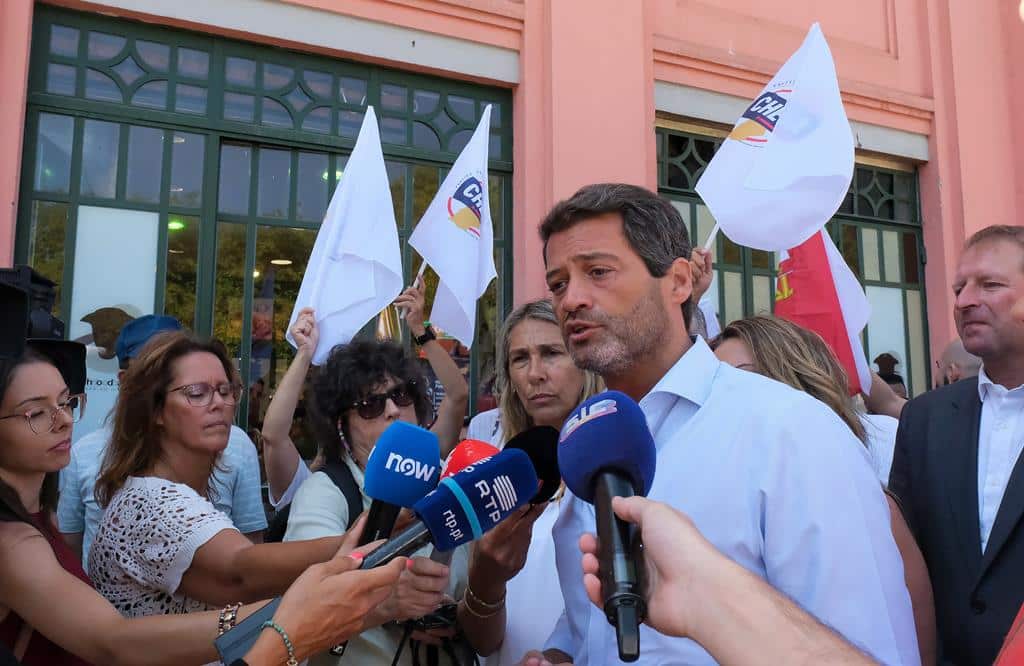Opposition parties full of criticism for government’s approach to ‘fixing’ Portugal’s health crisis
With the main opposition parties blaming the government for failing to get to grips with what was already a public health service in serious decline, data is being shared today over the waiting list for cancer surgery in Portugal: it has improved on the new government’s watch (four months in), but not in any kind of stellar fashion.
At the end of July there were still more than 1,500 patients waiting for surgery outside the recommended time.
According to ata available on the health service portal on monitoring measures of the government’s much-touted Health Emergency and Transformation Plan, on July 26 1,547 patients were waiting for cancer surgery outside the Maximum Response Time (MRT) – 98 fewer than had been at the end of April.
In total, 8,111 patients were registered for cancer surgery on July 26 – 1,263 fewer than when the Emergency Plan measures were announced.
The figures published on the health service portal show that at the end of April, 1,629 patients were on the waiting list for oncological surgery beyond the recommended time and still to be scheduled, which fell to 362 at the end of July.
According to the same figures, 18,904 cancer patients underwent surgery between May and July 26.
The OncoStop programme, which provides for the regularisation of waiting lists for cancer surgery, is one of the urgent measures in the Health Emergency and Transformation Plan.
The plan includes 54 measures – urgent, priority, and structuring – to ensure that access to health care is adjusted to the needs of the population.
The measures are structured around five strategic axes: Response in Time (10 measures); Safe Babies and Mothers (10 measures); Urgent and Emergency Care (13 measures); Close and Family Health (12 measures) and Mental Health (nine measures).
For the urgent measures, the government expects results within three months, for the priority measures, results by the end of this year, and for the structural measures, results in the medium and long term.
The OncoStop programme is part of the Response in Time axis, which, according to the data available on the SNS portal, has two urgent measures, one of which has already been completed.
In addition to these two urgent measures, the Response in Time axis includes three priority measures, such as the surgical programme for non-oncology patients, strengthening access to specialist consultations, and five structuring measures.
On Thursday, the prime minister and the president of Portugal, accompanied by the health minister, will visit the Oncology Service and the renovated facilities of the Luís Mendes da Graça Maternity Wards at the Santa Maria Hospital in Lisbon – and face questions from journalists – the overall ‘mood’ being highly critical: both PS Socialists (under whose eight year watch Portugal’s State health service visibily deteriorated) and CHEGA claim the government’s health emergency plan has failed, and it is time they admitted this. All expectations are that tomorrow the prime minister will ‘enter the fray’, and give his verdict on the situation.
Ahead of this, CHEGA leader André Ventura has compounded tensions by describing the situation in public health today as “explosive”.
“What we have in health is explosive”, he said. “There has been no reorganisation of services, no agreements with professionals that leave them satisfied – and we’re at a high point in terms of tourists in the country, as well as immigrants. Every day we are receiving worrying news about the functioning of the health system, from pregnant women who are denied assistance to people waiting hours and hours in the metropolitan areas of Lisbon and Porto to be attended. The moment has come to say the (emergency) plan has failed”.
Source material: LUSA




















